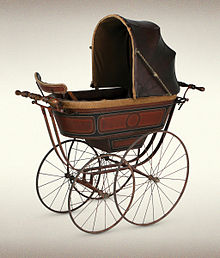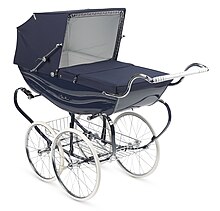
Aston Martin Lagonda Global Holdings PLC is a British manufacturer of luxury sports cars and grand tourers. Its predecessor was founded in 1913 by Lionel Martin and Robert Bamford. Steered from 1947 by David Brown, it became associated with expensive grand touring cars in the 1950s and 1960s, and with the fictional character James Bond following his use of a DB5 model in the 1964 film Goldfinger. Their sports cars are regarded as a British cultural icon. Aston Martin has held a Royal Warrant as purveyor of motorcars to Charles III since 1982, and has over 160 car dealerships in 53 countries, making it a global automobile brand. The company is traded on the London Stock Exchange and is a constituent of the FTSE 250 Index. In 2003 it received the Queen's Award for Enterprise for outstanding contribution to international trade. The company has survived seven bankruptcies throughout its history.
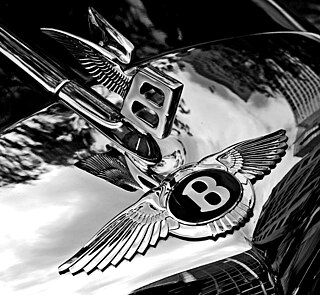
Bentley Motors Limited is a British designer, manufacturer and marketer of luxury cars and SUVs. Headquartered in Crewe, England, the company was founded by W. O. Bentley (1888–1971) in 1919 in Cricklewood, North London, and became widely known for winning the 24 Hours of Le Mans in 1924, 1927, 1928, 1929 and 1930. Bentley has been a subsidiary of the Volkswagen Group since 1998 and consolidated under VW's premium brand arm Audi since 2022.

Sir Frederick Henry Royce, 1st Baronet, was an English engineer famous for his designs of car and aeroplane engines with a reputation for reliability and longevity. With Charles Rolls (1877–1910) and Claude Johnson (1864–1926), he founded Rolls-Royce.
The automotive industry in the United Kingdom is now best known for premium and sports car marques including Aston Martin, Bentley, Caterham Cars, Daimler, Jaguar, Lagonda, Land Rover, Lister Cars, Lotus, McLaren, Mini, MOKE, Morgan and Rolls-Royce. Volume car manufacturers with a major presence in the UK include Nissan, Toyota, BMW, and Vauxhall Motors. Commercial vehicle manufacturers active in the UK include Alexander Dennis, Dennis Eagle, IBC Vehicles, Leyland Trucks, TEVVA and London Electric Vehicle Company.

Aston is an area of inner Birmingham, England. Located immediately to the north-east of Central Birmingham, Aston constitutes a ward within the metropolitan authority. It is approximately 1.5 miles from Birmingham City Centre.

The Aston Martin Lagonda is a full-size luxury four-door saloon manufactured by British manufacturer Aston Martin between 1974 and 1990. A total of 645 were produced. The name was derived from the Lagonda marque that Aston Martin had purchased in 1947. There are two distinct generations, the original, the short lived 1974 design based on a lengthened Aston Martin V8, and the entirely redesigned, wedge-shaped Series 2 model introduced in 1976.

Walter Owen Bentley, was an English engineer who founded Bentley Motors Limited in London. He was a motorcycle and car racer as a young man. After making a name for himself as a designer of aircraft and automobile engines, Bentley established his own firm in 1919. He built the firm into one of the world's premier luxury and performance auto manufacturers, and led the marque to multiple victories at the 24 Hours of Le Mans. After selling his namesake company to Rolls-Royce Limited in 1931, he was employed as a designer for Lagonda, Aston Martin, and Armstrong Siddeley.
Armstrong Siddeley was a British engineering group that operated during the first half of the 20th century. It was formed in 1919 and is best known for the production of luxury vehicles and aircraft engines.

Hunslet is an inner-city area in south Leeds, West Yorkshire, England. It is 1 mile (1.6 km) southeast of the city centre and has an industrial past.

Various methods of transporting children have been used in different cultures and times. These methods include baby carriages, infant car seats, portable bassinets (carrycots), strollers (pushchairs), slings, backpacks, baskets and bicycle carriers.
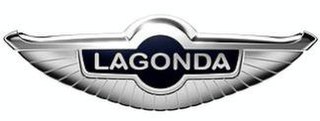
Lagonda is a British luxury car brand established in 1906, which has been owned by Aston Martin since 1947. The trade-name has not had a continuous commercial existence, being dormant several times, most recently from 1995 to 2008, 2010 to 2013, and 2016 onward.

Vickers plc was the remainder of Vickers-Armstrongs after the nationalisation of three of its four operating groups: aviation, shipbuilding and steel. It was purchased by Rolls-Royce plc in 1999, and the Vickers company name became defunct in 2003 as Rolls renamed the company Vinters Engineering.

Rolls-Royce Motors was a British luxury car manufacturer, created in 1973 during the de-merger of the Rolls-Royce automotive business from the nationalised Rolls-Royce Limited. It produced luxury cars under the Rolls-Royce and Bentley brands. Vickers acquired the company in 1980 and sold it to Volkswagen in 1998. Bentley Motors is the company's direct successor; however, BMW acquired the rights to the Rolls-Royce trademark for use on automobiles and launched a new Rolls-Royce company shortly afterwards.
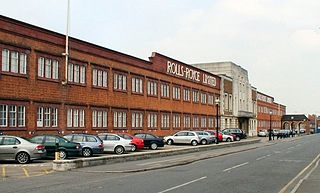
Rolls-Royce Limited was a British luxury car and later an aero-engine manufacturing business established in 1904 in Manchester by the partnership of Charles Rolls and Henry Royce. Building on Royce's good reputation established with his cranes, they quickly developed a reputation for superior engineering by manufacturing the "best car in the world". The business was incorporated as "Rolls-Royce Limited" in 1906, and a new factory in Derby was opened in 1908. The First World War brought the company into manufacturing aero-engines. Joint development of jet engines began in 1940, and they entered production in 1944. Rolls-Royce has since built an enduring reputation for the development and manufacturing of engines for military and commercial aircraft.


Leeds Corporation Tramways formerly served the city of Leeds, England. The original trams were horse-drawn, but the city introduced Britain's first overhead-powered electric trams in 1891, and by 1901, electrification had been completed. The tramway opened on 29 October 1891.
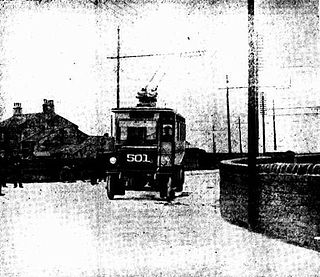
The Leeds trolleybus system served the West Riding of Yorkshire city of Leeds in England between 1911 and 1928. In May 2016, plans to construct a new system, the New Generation Transport (NGT) project, were refused approval from the UK Department for Transport, following a negative report from the planning inquiry.

The Aston MartinAtom is a prototype automobile built by Aston Martin (AM). Construction of the car began in 1939 and was completed in 1940. The Atom is one of the first fully functional concept cars ever built. Aston Martin explored several new technologies with the Atom, and its chassis design was the basis for the platform used by AM's post-war models well into the late 1950s.

The Henry Royce Institute is the UK’s national institute for advanced materials research and innovation. Its vision is to identify challenges and to stimulate innovation in advanced materials research to support sustainable growth and development. Royce aims to be a "single front door" to the UK’s materials research community. Its stated mission is to “support world-recognised excellence in UK materials research, accelerating commercial exploitation of innovations, and delivering positive economic and societal impact for the UK.”
